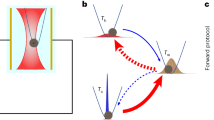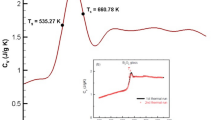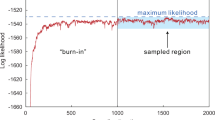Abstract
THE interesting experiments of Dr. Sydney Young, recorded in NATURE of December 19 (p. 152), seem to leave no doubt that the main part of the permanent ascent of the zero-point of a mecurial thermometer, after prolonged heating to a high temperature, is not due to compression of the bulb—rendered more plastic by the high temperature—by the external atmospheric pressure. Researches on the effects of stress on the physical properties of matter have convinced me that the molecules, not only of glass, but of all solids which have been heated to a temperature at all near their melting-point, are, immediately after cooling, in a state of constraint, and that this state can be more or less abolished by repeatedly heating the solid to a temperature not exceeding a certain limit, and then allowing it to cool again (it is not only the heating but the cooling also that is efficacious). It appears that the shifting backwards and forwards of the molecules, produced by this treatment, enables them to settle more readily into positions in which the elasticity is greatest and the potential energy is least.
This is a preview of subscription content, access via your institution
Access options
Subscribe to this journal
Receive 51 print issues and online access
$199.00 per year
only $3.90 per issue
Buy this article
- Purchase on SpringerLink
- Instant access to the full article PDF.
USD 39.95
Prices may be subject to local taxes which are calculated during checkout
Similar content being viewed by others
Author information
Authors and Affiliations
Rights and permissions
About this article
Cite this article
TOMLINSON, H. Exact Thermometry. Nature 41, 198 (1890). https://doi.org/10.1038/041198a0
Issue date:
DOI: https://doi.org/10.1038/041198a0



